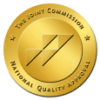When you’re ready to stop, you deserve care that is safe, private, and straightforward. Our physician-led program provides drug detox in Tennessee with round-the-clock monitoring, comfort medications, and a calm setting that makes the first days more manageable.
Whether you’re looking for detox near Nashville or prefer another location in the state, we guide you from stabilization into the next level of treatment, so momentum isn’t lost. From assessment to aftercare planning, our team focuses on safety, respect, and practical next steps that fit real life.
If you’ve been searching for a medical detox Tennessee can trust, you’re in the right place. Reach out, and we’ll help you get started today.
What Is Drug Detox?
Detox is the medically supervised process of clearing alcohol or drugs from your body while managing withdrawal. It is not the entire course of treatment, but it is the foundation: detox stabilizes your health, reduces risk from acute symptoms, and prepares you to focus on therapy, skills, and long-term recovery.
Your body naturally eliminates substances through the liver, kidneys, lungs, skin, and gastrointestinal system. During withdrawal, however, brain chemistry and vital signs can swing quickly. A medical team helps your system rebalance with monitoring, hydration, nutrition, and evidence-based medications that reduce discomfort and complications. This support reduces the risk of emergencies and increases the likelihood you’ll complete detox and continue care.
Here’s what to expect at intake.
First, you’ll complete a confidential assessment that covers your substance use history, medical conditions, mental health, and current medications. We take baseline vitals, run appropriate labs, and screen for withdrawal risk using standardized tools. If there are co-occurring concerns such as anxiety, depression, or trauma, our clinicians note them early so your plan is coordinated from day one.
Next, a clinician designs a personalized medication plan.
For example, opioid withdrawal may be managed with buprenorphine or comfort medications; alcohol or benzodiazepine withdrawal may require seizure-prevention protocols; stimulant withdrawal typically calls for sleep support and careful mood monitoring.
You’ll receive a clear orientation to the unit, daily check-ins, and 24/7 nursing oversight. Before discharge, we create a warm handoff into the next level of care, whether it’s residential, PHP, IOP, or outpatient, so you leave with a schedule, appointments, and a realistic plan for the days ahead.
Drug Addiction in Tennessee
Withdrawal isn’t one-size-fits-all. Dose, duration of use, health history, co-occurring disorders, and polysubstance use all shape drug withdrawal symptoms and withdrawal timelines.
Below is a practical overview by substance to help you understand what to expect in medical detox Tennessee programs like ours. This is education—not personal medical advice.
Certain substances (alcohol, benzodiazepines, barbiturates) can be dangerous to stop without supervision. If you’re unsure, call us; we’ll help you choose the safest path to drug detox Tennessee residents can trust.
Alcohol Withdrawal Symptoms, Timelines, and Treatment
Common symptoms: Anxiety, tremor, sweating, nausea, insomnia, elevated heart rate and blood pressure; in severe cases, seizures or delirium tremens (DTs) with confusion, agitation, fever, and hallucinations. [1]
Onset/peak/duration:
Onset: 6–12 hours after last drink.
Peak: 24–72 hours.
Duration: 3–7 days; DTs can emerge on day 3–5.
Evidence-based care: Symptom-triggered or fixed-dose benzodiazepine protocols to prevent seizures; thiamine (to protect the brain), folate, fluids/electrolytes, and magnesium as needed. Continuous vitals monitoring, CIWA-Ar scoring, and treatment of complications (e.g., dehydration, arrhythmias). Early nutrition, sleep support, and transition to medications for alcohol use disorder when appropriate.
Opioids Withdrawal Symptoms, Timelines, and Treatment
Common symptoms: Muscle and bone aches, chills/gooseflesh, runny nose, watery eyes, yawning, GI upset (nausea, vomiting, diarrhea), dilated pupils, anxiety, restlessness, insomnia.
Onset/peak/duration:
- Short-acting opioids (heroin): onset 8–24 hours; peak 48–72 hours; duration 4–10 days.
- Fentanyl or long-acting Rx: onset may be delayed; symptoms can be more prolonged or wavelike.
Evidence-based care: Buprenorphine or methadone induction when indicated; clonidine/lofexidine for autonomic symptoms; anti-nausea and antidiarrheals; NSAIDs/acetaminophen for aches; sleep support. Hydration, light nutrition, and frequent
Benzodiazepines Withdrawal Symptoms, Timelines, and Treatment
Why higher risk: Abrupt cessation can cause seizures, severe anxiety, panic, insomnia, perceptual disturbances, and, in rare cases, psychosis. [3]
Onset/peak/ duration:
- Short-acting agents: onset 24–48 hours; peak within the first week.
- Long-acting agents: onset 2–7 days; symptoms may wax and wane for weeks.
Evidence-based care: Gradual taper under medical supervision, often converting to a longer-acting benzodiazepine for steadier reduction. Consider anticonvulsant support in selected cases. Sleep hygiene, anxiety management skills, and careful monitoring for co-occurring depression or trauma. Never attempt to stop suddenly at home.
Stimulants Withdrawal Symptoms, Timelines, and Treatment
Common symptoms: Profound fatigue, increased sleep, depression or “crash,” anhedonia (low pleasure), anxiety, irritability, increased appetite, vivid dreams; sometimes agitation or paranoia early on.
Onset/peak/duration:
Onset: within hours of last use.
- Peak: first 24–72 hours (“crash” phase).
- Duration: mood and sleep changes can linger 1–2 weeks or longer.
Evidence-based care: Supportive sleep strategies, structured daily routine, hydration and nutrition (protein, complex carbs, micronutrients), and close anxiety/depression monitoring. Short-term medications may target insomnia, anxiety, or agitation. Suicidality screening is essential early. Craving management and early therapy/skills help prevent rapid return to use.
Cannabis Withdrawal Symptoms, Timelines, and Treatment
Common symptoms: Irritability, anxiety, restlessness, insomnia/vivid dreams, decreased appetite, mild GI upset, headache, sweating.
Onset/peak/duration:
- Onset: 24–48 hours after last use.
- Peak: days 2–6.
Duration: typically 1–2 weeks; sleep changes may last longer.
Evidence-based care: Time-limited support—sleep hygiene, short-term sleep or anxiety aids when appropriate, hydration, light exercise, and coping skills. Education about rebound dreams and mood swings helps normalize the process.
Kratom Withdrawal Symptoms, Timelines, and Treatment
Common symptoms: Opioid-like withdrawal—muscle aches, restlessness, anxiety, sweating, yawning, runny nose, GI symptoms (nausea, diarrhea), plus autonomic changes (blood pressure/heart rate variability). [4]
Onset/peak/duration:
- Onset: 12–24 hours after last use.
- Peak: 2–3 days.
Duration: 4–7 days, sometimes longer with heavy, frequent use.
Evidence-based care: Comfort meds similar to mild opioid protocols (clonidine/lofexidine, GI support, analgesics, sleep aids), hydration and electrolytes, gradual activity. Assess for co-use of opioids or benzodiazepines. Step down to therapy/MAT if indicated for persistent cravings or polysubstance risk.
Prescription Sedatives & Hypnotics Withdrawal Symptoms, Timelines, and Treatment
Common symptoms: Rebound insomnia, anxiety, irritability, tremor; for barbiturates, risk of severe withdrawal, including seizures.
Onset/peak/duration:
- Z-drugs: onset within 1–2 days; symptoms improve over 1–2 weeks.
- Barbiturates: onset within 24–48 hours; course can be prolonged and medically complex.
Evidence-based care: Tapering strategies tailored to agent and dose; seizure precautions for barbiturates; sleep and anxiety supports; careful monitoring of vitals and cognition. Evaluate co-occurring depression/anxiety and integrate non-sedating sleep therapies early.
Polysubstance Use Withdrawal Symptoms, Timelines, and Treatment
Why higher risk: Overlapping drug withdrawal symptoms can amplify each other (e.g., alcohol + benzodiazepines), and mixed timelines complicate care. Medical issues (dehydration, electrolyte imbalance, arrhythmias) are more common.
Approach: Individualized plans with priority to life-threatening risks first (seizure/DT prevention, airway and cardiac monitoring). Staged medication strategies, frequent reassessment, and coordinated psychiatric support. Early discharge planning to a higher-structure level of care reduces relapse risk.
What Helps Across All Detoxes
- 24/7 monitoring & vitals: Catch changes early; adjust meds promptly.
- Hydration & nutrition: Replenish electrolytes and support liver/gut function.
- Sleep and anxiety support: Non-addictive medications and behavioral strategies.
- Trauma-informed care: Calm environment, consent-based interventions, privacy.
- Continuum planning: Transition from stabilization to therapy (Residential, PHP, IOP, OP) before discharge to protect early gains.
The right setting matters. A medical detox Tennessee program provides immediate safety, evidence-based medications, and a direct bridge into ongoing care, which are key advantages that “white-knuckle” approaches can’t match. If you’re evaluating drug detox Tennessee options or need clarity about your withdrawal timelines, we’ll help you map a safe plan and start recovery with confidence.
Signs You May Need Medical Drug Detox
Recognizing when it’s time for a medically supervised detox can help prevent complications and set the foundation for lasting recovery. If you notice any of the following signs, it may be time to consider professional help at Tennessee Detox Center:
- Withdrawal symptoms when you stop using: Shaking, sweating, nausea, insomnia, anxiety, or flu-like feelings that appear hours after your last use.
- Increased tolerance: Needing more of a substance to feel the same effects or avoid feeling “off.”
- Unsuccessful attempts to quit: Trying to stop on your own but returning to use due to intense cravings or discomfort.
- Combining multiple substances: Using drugs and alcohol together or mixing prescriptions, which increases health risks during withdrawal.
- Medical or mental health concerns: Co-occurring conditions such as anxiety, depression, PTSD, or heart and liver problems that can complicate detox.
- Dangerous withdrawal risks: Past seizures, hallucinations, or severe agitation after stopping use—especially with alcohol, benzodiazepines, or opioids.
- Dependence impacting daily life: Missing work, school, or family responsibilities due to substance use or withdrawal symptoms.
- Fear of stopping without help: Feeling unsafe or uncertain about detoxing at home or without medical supervision.
Detox at Home vs. Medical Detox
Early recovery is hard enough. Choosing the safest setting shouldn’t be. While some people consider “toughing it out” at home, a medical detox Tennessee program offers clinical safeguards, comfort, and a direct bridge into treatment that home settings simply can’t match.
Here’s a clear comparison to help you decide the best next step, whether you’re looking for detox near Nashville or elsewhere in the state.
The Key Differences (At a Glance)
Safety
- Medical detox (best practice): 24/7 monitoring of vitals, continuous symptom assessments, rapid medication adjustments, and seizure/DT management protocols. Immediate escalation pathways if complications arise.
- Home detox (risky): No continuous monitoring, delayed response to emergencies, no access to anti-seizure protocols or IV fluids/electrolytes, increased risk of complications going unnoticed.
Comfort
- Medical detox: Tailored protocols that reduce nausea, chills, insomnia, anxiety, and pain; structured sleep support; hydration and nutrition to stabilize energy and mood.
- Home detox: “White-knuckling” through symptoms with inconsistent rest, poor hydration, and higher stress—factors that amplify discomfort and cravings.
Success Odds
- Medical detox: Stabilization plus a direct transition to treatment (Residential/PHP/IOP/OP) keeps momentum strong and relapse risk lower during the high-risk first days out.
- Home detox: Higher likelihood of quitting mid-course or returning to use to stop symptoms; little to no discharge planning or coordinated follow-up.
When Home Detox Is Unsafe (Don’t Go It Alone)
Some situations require medical oversight from the start. If any of the following apply, choose a supervised setting for drug detox that Tennessee residents can trust:
- Alcohol, benzodiazepines, or barbiturates: These can cause life-threatening withdrawal (seizures, delirium tremens). Medical detox provides seizure prevention, continuous monitoring, and rapid intervention.
- Heavy/long-term use or polysubstance use: Mixed substances create overlapping, unpredictable withdrawal timelines; long-term/high-dose use increases risk for complications that need medical management.
- History of seizures or serious medical conditions: Heart, liver, or kidney disease, uncontrolled hypertension, diabetes issues, or a past withdrawal seizure raise the stakes.
Co-occurring psychiatric conditions
Severe anxiety, depression, PTSD, or suicidal thoughts require integrated medical-psychiatric support, safe medications, and careful observation.

Why Choose Medical Detox in Tennessee
Choosing where to begin recovery is about more than getting through the first few days. It’s about setting yourself up for what comes next. A medical detox Tennessee program gives you privacy, structure, and clinical oversight so you can stabilize safely while keeping life moving.
When appropriate, we help you stay connected to work or school responsibilities, coordinate documentation, and communicate discreetly. Because we serve clients across the state, you can access care anywhere in Tennessee, from detox near Nashville to other regions, while staying close to home, family, and supportive routines that make the transition into rehab and aftercare smoother.
In a physician-led setting, detox isn’t guesswork. It’s a plan. From day one, we assess your health history, substance use pattern, and any co-occurring mental health concerns, then tailor medications and monitoring to your specific risks.
That means fewer surprises, fewer setbacks, and a much higher chance of finishing detox and continuing into treatment. Just as importantly, you’re treated with dignity—private spaces, trauma-informed care, and clear explanations so you always know what’s happening and why.
Why this matters:
- 24/7 monitoring and rapid response
Vital signs can shift quickly during withdrawal. Around-the-clock nursing and on-call medical providers allow us to adjust medications promptly, manage complications, and keep you safe and comfortable. - Evidence-based medications to reduce risk/discomfort
From buprenorphine for opioid withdrawal to benzodiazepine protocols for alcohol, appropriate medications calm the nervous system, lower seizure risk, and ease symptoms like nausea, insomnia, and anxiety. - Shorter, safer detox vs. attempting alone
White-knuckling at home often leads to relapse or emergency care. Medical support reduces complications, improves completion rates, and preserves momentum for what comes next. - Seamless handoff to rehab and aftercare (continuum)
Before discharge, you’ll have a confirmed next step—Residential, PHP, IOP, or OP—plus appointments, transportation guidance as needed, and a practical plan for the first 72 hours.
Staying close to home can make a meaningful difference. Many people do better when loved ones can participate (with your consent), when the environment feels familiar, and when logistics are realistic.
Starting drug detox in Tennessee keeps your support network within reach and makes it easier to transition into ongoing care without lengthy travel or disruption. If work or school is a concern, we’ll help you understand what’s feasible during detox and provide the documentation you may need.
Medical detox is also about comfort. Stabilizing sleep, nutrition, and hydration early helps you think clearly and engage with care. You’ll learn simple strategies to manage cravings and anxiety. These are skills you can carry into therapy right away.
If you live with depression, anxiety, PTSD, or another mental health condition, integrated dual diagnosis support ensures your plan treats the whole picture, not just the substance use.
Finally, choosing a licensed, physician-led program isn’t just safer. It’s more strategic. Detox is the beginning of a longer trajectory: stabilization → therapy and skills → relapse prevention → alumni and community support.
When those pieces are coordinated from the start, you spend less energy putting out fires and more energy building a life that works.
Levels of Care for Drug Detox & Addiction Treatment
Recovery works best when care is matched to what you need right now and then adjusted as your stability, skills, and confidence grow. In Tennessee, that path is a continuum: you begin by getting medically safe, then you build daily structure and coping tools, and finally, you practice those tools in real life with the right amount of support.
Here’s how each level fits together, and how dual diagnosis care (for co-occurring mental health conditions) is woven throughout.
Medical Detox for Drug Addiction Treatment in Tennessee
24/7 care to detox safely
For opioid use disorder, medications like buprenorphine or methadone can reduce cravings and protect against overdose; for alcohol use disorder, naltrexone or acamprosate may help reduce return-to-use risk and ease early recovery symptoms. [5] Medication is paired with therapy and accountability, and can be started in detox or shortly after, depending on your history and goals. Your team will discuss benefits, timing, and how these supports fit into your broader plan.
Medical Drug Detox is a good fit if you’ve had:
- Severe or complicated withdrawals in the past
- Daily/high-dose use of opioids, benzos, or multiple substances
- Other medical or mental health conditions that need monitoring
- Detox attempts that didn’t stick
- High relapse risk or limited support at home
Residential / Inpatient for Drug Addiction Treatment in Tennessee
Live-in care with a steady routine
When life is loud and unstable, a short stay (often 30–90 days) gives you space to stabilize. Expect individual and group therapy, skills classes, family work, medication management (e.g., buprenorphine, methadone, naltrexone as appropriate), and a clear aftercare plan.
PHP – Partial Hospitalization for Drug Addiction Treatment in Tennessee
Day program, home at night
Usually 20+ hours/week. Sleep at home, get strong structure, frequent check-ins, medication/psychiatric support, and relapse-prevention planning—great as step-down from residential or step-up from weekly therapy.
PHP can help when you:
- Need daily structure and monitoring
- Have higher relapse risk or complex triggers
- Are addressing both substance use and mental health symptoms
- Aren’t ready for the lighter touch of IOP
IOP – Intensive Outpatient (Level 2.1)
9–19 hours a week, built around real life
Meets several days a week to practice coping skills and keep work/school/family on track. Evidence shows IOP can match inpatient effectiveness for many people with substance use disorders.
Standard Outpatient for Drug Addiction Treatment in Tennessee
Steady check-ins to keep momentum
Weekly/bi-weekly therapy, recovery groups, medication support (when appropriate), and routine testing to maintain progress and accountability—often a step-down from higher care.
Sober Living in Tennessee
Recovery-focused home life
Live in a clean, substance-free home with peers. House meetings, random testing, and shared responsibility help you practice everyday life skills with support.
Substances We Treat
We provide medically supervised detox and coordinated treatment for a full range of substances, with individualized plans for single-substance and polysubstance use.
Alcohol
Medical monitoring and symptom-relief medications to detox safely and comfortably.
Opioids
Heroin, fentanyl, and prescription pain medications with evidence-based withdrawal support and MAT options.
Benzodiazepines
Gradual, medically guided tapering to reduce risks and stabilize sleep and anxiety.
Stimulants
Cocaine and methamphetamine with targeted symptom management and craving reduction strategies.
Cannabis
Support for irritability, insomnia, and appetite changes during early stabilization.
Kratom
Structured taper and symptom management for kratom dependence and withdrawal.
Prescription Sedatives & Hypnotics
Clinician-supervised tapers to minimize rebound insomnia and anxiety.
Polysubstance Combinations
Integrated protocols that address multiple substances at once, coordinated across medical and therapy teams.
Not sure where to start?
Speak with our team for a same-day assessment and a plan that fits your goals and medical needs.
Dual Diagnosis Care: Substance use and Mental Health
Substance use and mental health often affect each other. If you’re living with depression, anxiety, PTSD, bipolar symptoms, ADHD, or other concerns, you need a plan that treats the whole picture, not just the substance use. Dual diagnosis support is built into every level of care:
- Early screening & assessment in detox or intake to identify mood, anxiety, trauma, and attention symptoms
- Psychiatric evaluation to align medications with safety and recovery goals
- Integrated treatment planning so medical, therapy, and case management stay in sync
- Skills that translate (sleep routines, stress tools, grounding, cognitive strategies) to manage symptoms without returning to substance use
What that can look like
Signs vary, but using to cope usually makes symptoms worse over time.
Why they often show up together
- Shared roots: stress, trauma, family history, environment.
- Self-medicating: short-term relief that backfires.
- Brain changes: shifts in mood, sleep, and thinking.
Common pairings
- Depression or bipolar disorder
- Anxiety/panic disorders
- PTSD and trauma-related symptoms
- ADHD
- OCD
- Borderline personality traits
- Schizophrenia-spectrum symptoms
Red flags to notice
- Drinking to manage feelings
- Withdrawal symptoms
- Big mood swings
- Sleep all over the place
- Appetite/weight changes
- Brain fog, memory trouble
- Pulling away from people
- Struggling at work or school
- If you’re in crisis or thinking about self-harm, call 988.
Treating both Drug Addiction and Mental Health —together
The “fix one, then the other” approach doesn’t hold up. Integrated care—one team treating both—leads to better outcomes.
Encouraging results: Many improve with combined programs; some studies show strong drops in depression/anxiety over the first year. Example study.
What integrated care can include
- Thorough assessment: full picture, not just one piece.
- Medication support: mood/anxiety/sleep + anti-craving options.
- Evidence-based therapy: CBT, DBT, trauma-informed care.
- Specialized groups: honest talk about how they connect.
- Family education: help loved ones help you.
- Whole-person habits: mindfulness, movement, food, sleep.
Life After Detox—Relapse Prevention & Long-Term Support
Detox helps your body stabilize — but life after detox is where recovery takes root. The days and weeks that follow are when structure, coping skills, and steady support matter most. Our goal is to help you move forward with a plan you understand, tools you’ll actually use, and people you can count on.
Starting on your last day in detox, we map a clear path forward that includes step-down care, a realistic home routine, and community connections — so you’re not facing the first 72 hours alone.
Coping Skills That Stick
A Practical Toolkit Beats a Perfect Plan
- Craving plans: Identify your personal “early warning” signs, pair them with clear if–then steps (text a sponsor, step outside, drink water, delay five minutes), and practice urge-surfing so cravings pass without becoming actions.
- Trigger mapping: Track the people, places, and times of day that raise risk — then build replacements like different routes home, a new evening routine, or a “leave early” script for social plans.
- Sleep + stress routines: Consistent bed/wake times, morning light exposure, caffeine cutoffs, brief breathing drills, and 10-minute wind-down rituals to reduce PAWS-related mood swings.
- Nutrition basics: Protein early in the day, steady hydration/electrolytes, balanced meals that stabilize mood and energy, and simple grocery lists that prevent decision fatigue.
- Micro-habits: Two-minute daily checklists (meds, water, calendar), “one text a day” accountability, and five-minute tidying or stretching to keep momentum steady.
Small actions win: The goal isn’t willpower — it’s repeatable routines that make relapse less likely.
Therapy That Sustains Recovery
Where Skills Deepen and Patterns Shift
- CBT/DBT tools: Understand thought–behavior links, build distress tolerance, strengthen emotion regulation, and apply skills to real triggers like conflict, deadlines, boredom, and loneliness.
- Trauma-informed support: Care built around safety, choice, and pacing — with grounding and body-based tools so healing doesn’t feel overwhelming.
- Family systems work: Reset boundaries, roles, and communication — aligning expectations around quiet evenings, rides to meetings, medication support, and home stability.
- Peer groups: Small, consistent groups that build accountability and reduce isolation — often the strongest antidote to cravings.
- Medication management: For alcohol or opioid use disorders, continuing medications like naltrexone, acamprosate, buprenorphine, or methadone when appropriate, plus antidepressant/anxiety medication adjustments as needed.
Why it matters
Detox stabilizes the body. Therapy stabilizes the future — by building skills that outlast cravings.
Aftercare Planning
Specific, Scheduled, Realistic
- Personalized step-down: Confirmed slots for Residential/PHP/IOP/OP based on your risk profile, home environment, and work/school commitments.
- Local referrals across Tennessee: Therapists, psychiatrists, MAT providers, and support groups near home — so care stays convenient.
- Tele-options where appropriate: Video therapy, medication follow-ups, and virtual groups when travel, childcare, or distance would otherwise get in the way.
- 72-hour roadmap: A written plan covering sleep, meals, meetings, meds, rides, and a short list of people to call before cravings turn into actions.
- Relapse response plan: Clear steps if you slip — who to call, how to re-engage, and options for brief stabilization without losing ground.
Built for real life: Specific, scheduled, and realistic beats generic “good intentions.”
Alumni & Sober Support
Connection That Lasts
- Check-ins & accountability: Scheduled calls or messages to review wins, challenges, and upcoming high-risk stress points (holidays, travel, anniversaries).
- Events & workshops: Skill refreshers, family nights, and seasonal gatherings that keep recovery community strong.
- Peer leadership: Opportunities to mentor newcomers — because helping others strengthens your own recovery.
- Community resources: Help finding nearby and virtual meetings that match your style — AA/NA, SMART Recovery, Refuge Recovery, faith-based options, or secular support.
Why it works
Belonging + accountability = momentum between sessions. You’re never doing this alone.
First 72 Hours: Your Roadmap
From Discharge to Day Three
- Day 0 (Discharge): Ride arranged, meds in hand, first meeting on calendar, check-in call time confirmed.
- Day 1: Sleep routine set (bed/wake), simple meals prepped, one meeting + one connection (sponsor/peer/coach).
- Day 2: Therapy/IOP intake, pharmacy refill check, cravings plan run-through (urge-surfing + if–then steps).
- Day 3: Stress audit (work/family triggers), schedule tweak, confirm next week appointments and rides.
Keep the Rhythm
Recovery isn’t about perfection; it’s about rhythm. With the right mix of routine, accountability, and compassion, the skills you practice in week one become habits by month three.
Staying the Course: Relapse Prevention
Recovery isn’t perfection; it’s noticing sooner and choosing differently. Addiction can flare like other chronic conditions, and relapse rates are similar to asthma or diabetes. It’s a sign more support is needed—not failure.
What a relapse can look like
Often three stages: emotional → mental → physical. Catching the early ones changes the ending.
Emotional
Early tells:
- Stuffing feelings
- Pulling back from your people
- Skipping meetings or sessions
- Sleep/self-care slipping
- Trying to white-knuckle it
Mental
The tug-of-war:
- Cravings pick up
- Thinking about people/places tied to use
- Downplaying past consequences
- “What if” planning
- Less honesty with yourself/others
Physical
Use happens:
- That first drink or drug
- Act fast—tolerance drops, overdose risk rises
- This is data, not defeat—adjust the plan and keep going
Tools you can use right away
-
Detox gets your body stable; life after detox is where recovery takes root. The days and weeks that follow are when structure, skills, and support matter most. Our goal is to help you carry momentum forward with a plan you understand, tools you’ll actually use, and people you can count on.
From your last day in detox, we map a clear path that includes step-down care, routines at home, and community connections so you’re not facing the first 72 hours alone.
Coping Skills That Stick
A practical toolkit beats a perfect plan you never use. We focus on skills that fit into busy lives:
- Cravings plans: Identify your personal “early warning” signs, pair them with if-then responses (text a sponsor, step outside, drink water, delay five minutes), and practice urge-surfing.
- Trigger mapping: Chart people, places, and times of day that spike risk; design replacements—different routes home, a new evening routine, or a “leave early” script for social plans.
- Sleep and stress routines: Consistent bedtime/wake time, light exposure in the morning, caffeine cutoffs, brief breathing drills, and 10-minute wind-down rituals to reduce PAWS-related swings.
- Nutrition basics: Protein at breakfast, steady hydration/electrolytes, balanced meals to stabilize energy and mood, and simple grocery lists that keep you out of decision fatigue.
- Micro-habits: Two-minute checklists (meds, water, calendar), “one text a day” accountability, and five-minute tidying or stretching to anchor momentum.
What to Expect during Drug Detox in Tennessee?
Choosing a detox provider is about more than beds and schedules. It’s about trusting a team to guide you through a difficult week and hand you a plan that works in real life. Here’s what sets Tennessee Detox Center apart.
Physician-led Medical Detox
Your care is directed by medical providers who understand withdrawal, sleep disruption, anxiety, and pain and how they interact.
Our Medical Drug Detox Program in Tennessee is paired with integrated therapy so you’re learning while you stabilize: CBT for unhelpful thought–behavior loops, DBT for emotion regulation and distress tolerance, Motivational Interviewing to strengthen commitment to change, trauma-informed pacing when triggers are part of the picture, family sessions (with your consent) to align home support, and holistic practices that calm the nervous system.
12-Step involvement is available if it fits your preferences.
Full Continuum of Care
Recovery is a sequence, not a single stop. We map a clear path from detox to the right next step, whether it’s Residential, PHP, IOP, OP, or Aftercare, so you don’t have to restart your story at each handoff.
The same philosophy, collaborative team approach, and a calendar of appointments are in place before you walk out the door. That continuity keeps momentum high and relapse risk low.
If you’ve been searching for drug detox in Tennessee, you’ll find a calm, medically supervised start and a team that stays with you through the next steps. If you’re comparing options for a drug detox center that Tennessee residents trust, consider the details that matter when symptoms peak: 24/7 clinical oversight, clear communication, privacy, and a step-down plan that’s scheduled, not theoretical.
Paying for Medical Drug Detox in Tennessee
Getting started shouldn’t be slowed down by paperwork. We make it simple to confirm whether you have detox covered under insurance and what your costs may be.
Our admissions team completes fast, confidential benefits checks often in the same call and explains your options in plain language. We verify both in-network and out-of-network benefits, estimate any copays or deductibles, and help you choose the most affordable path forward.
Plans we work with include: Aetna, Blue Cross Blue Shield of Tennessee (BCBS TN), Blue Cross Blue Shield of Texas (BCBS TX), and Cigna, among others. If your card lists a different Blue plan, a regional PPO, or an employer-sponsored plan, we’ll still check it. Many policies include behavioral health coverage for medical detox.
Fast Benefits Check
In one quick call or via our online form, we’ll verify your benefits and explain them in plain language. Here’s what we confirm:
- Covered levels of care. Whether your policy includes detox, residential treatment, PHP/IOP, and outpatient aftercare.
- Deductibles. How much are you responsible for before your plan shares costs?
- Coinsurance & copays. The percentage or flat amounts you’ll pay after the deductible.
- Out-of-network (OON) benefits. If your plan includes OON coverage, how does it apply here?
- Authorization needs. Whether your insurer requires pre-approval and what clinical documentation they need.
You’ll receive a simple breakdown of expected out-of-pocket costs, what the plan pays, and the next steps. There is no billing jargon, just the numbers you need.
Plans We Often Work With
Tennessee Detox Center works with many commercial insurance plans, including Aetna, Cigna, BCBS/Optum, and UMR. Coverage varies by employer group and policy, so a benefits check is essential even if your card lists one of these names. If you’re comparing options for kratom detox in Tennessee, let us confirm your plan specifics before you travel or request time off.
What to have ready:
- Insurance card (front and back)
- Policyholder name and date of birth
- Your preferred callback time
- Any recent treatment history (if applicable), so we can anticipate authorization needs.
Why Pre-Authorization Matters
Most insurers require prior authorization for detox and higher-intensity care. That’s not a barrier. We handle this process with you. Our clinicians complete an assessment documenting medical necessity, including your use pattern, withdrawal severity, co-occurring conditions, safety considerations, and why a particular level of care (detox, residential, PHP, etc.) fits your needs.
Aligning the level of care with your clinical picture does two things:
- Improves outcomes. The right “dosage” of structure makes early progress stick.
- Protects your coverage. Clean documentation helps minimize surprise bills or denials.
If your insurer requests additional information, we respond quickly and update you. You’ll know where your authorization stands before you arrive and again before you step down to the next level of care.
Ready to see your options?
Verify Insurance online or Call Admissions. We’ll map benefits, review potential out-of-pocket costs, and help you plan dates matching your clinical needs and budget.

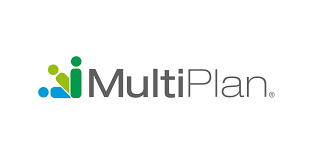

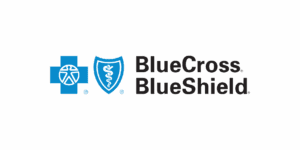
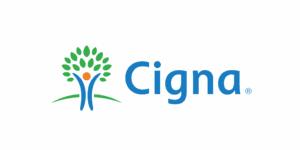
















Where We Serve (Detox Near Nashville & Across Tennessee)
Whether you’re seeking detox near Nashville or care closer to home, we make access simple and discreet. Our admissions team helps coordinate timing, transportation options when available, and smooth handoffs so you can begin safely without drawing attention or disrupting work and family more than necessary.
- Nashville Area: Easy access for Davidson and surrounding counties with proximity to airports, major employers, and universities. Many clients choose to start here for convenience and continuity of care.
- Greater Middle Tennessee: Franklin, Murfreesboro, Clarksville—we coordinate step-down referrals and community supports so your aftercare network is nearby and practical.
- East Tennessee: Knoxville, Chattanooga—connections to trusted therapists, MAT providers, and peer groups, plus tele-options if travel is difficult.
- West Tennessee: Memphis and surrounding communities—regional partners for rehab levels of care and alumni networks to keep you connected after discharge.
Across the state, we emphasize privacy and discretion, from confidential benefits checks to low-profile arrival planning. If transportation logistics feel overwhelming, talk to admissions; we’ll walk you through the options and map the simplest path to a safe start. Wherever you are in Tennessee, you don’t have to do the first step alone.
Begin Medical Drug Detox in Tennessee today
You don’t have to figure this out alone. If you’re considering drug detox in Tennessee, our admissions team offers a private, no-pressure call to answer questions and map out your safest next step, whether you need detox in Tennessee or support elsewhere in the state.
We’ll complete a quick insurance verification, explain expected timelines, and outline your first 72 hours so nothing feels uncertain. Most importantly, you’ll be treated with respect and compassion from the first hello.
FAQs About Drug Detox in Tennessee
It varies by substance and health history. Many people complete the acute phase in 3–7 days, but some withdrawals last longer. Alcohol often peaks around days 2–3; opioids (like heroin or fentanyl) typically peak days 2–4; benzodiazepines can require a gradual taper over weeks under medical supervision. Dose, duration of use, age, medical conditions, and co-occurring mental health needs all influence timelines. In a medical detox Tennessee setting, your team monitors symptoms and adjusts medications so you stabilize safely and are ready for the next step.
Medical detox is designed for safety. You’ll have continuous monitoring, evidence-based medications for symptoms (e.g., buprenorphine for opioids, seizure-prevention protocols for alcohol), and clear pathways to higher care if needed. Home attempts lack vital monitoring, IV fluids/electrolytes, and emergency readiness. In our program, individualized protocols, nursing oversight, and physician leadership reduce complications and help you finish detox and transition directly into treatment, which is one reason clients choose drug detox Tennessee programs like ours.
Alcohol, benzodiazepines, and barbiturates can cause life-threatening withdrawal (seizures, delirium tremens, severe autonomic instability). People with heavy or long-term use, polysubstance use, pregnancy, a seizure history, or significant medical/psychiatric conditions are also at higher risk. If any of these apply, choose supervised care, whether you’re seeking detox near Nashville or elsewhere in the state, so seizure prevention, fluids, and rapid medication adjustments are available immediately.
It depends on your level of care and your symptoms. Medical detox prioritizes safety and rest; most people step back from work or classes for a few days. As you move into Residential, PHP, IOP, or OP, we help you plan a realistic schedule that respects your responsibilities. Our team can provide documentation or care coordination for employers or schools (with your consent) and outline what’s feasible as you advance through the continuum.
Yes. Many clients arrive with depression, anxiety, PTSD, or other concerns that interact with substance use. You’ll receive early screening and, when appropriate, a psychiatric evaluation with medication management. Therapists integrate coping skills (sleep, stress, grounding, cognitive strategies) so mental health and substance use are treated together. This integrated approach continues as you step down to rehab levels of care.
Drug Detox in Tennessee is often covered under insurance, though benefits vary by plan. We verify coverage quickly and confidentially. We work with Aetna, Blue Cross Blue Shield of Tennessee (BCBS TN), Blue Cross Blue Shield of Texas (BCBS TX), Cigna, and other plans. Our verification explains the in-network/out-of-network status, any prior authorization, and estimated out-of-pocket costs. If you have questions about medical detox Tennessee benefits, we’ll check your plan and walk you through the next steps.
Absolutely. Drug Detox in Tennessee is the start, not the finish line. Before discharge, we arrange a warm handoff into Residential, PHP, IOP, or OP and set your first appointments. You’ll also receive a 72-hour roadmap, a relapse-prevention plan, and connections to alumni programming and local/virtual groups (AA/NA, SMART Recovery, Refuge Recovery). This continuity protects your progress and keeps momentum strong as you transition out of drug detox in Tennessee care.
Medically Supervised Drug Detox in Tennessee
Tennessee Detox Center provides comprehensive inpatient drug detox in Tennessee for individuals dependent on opioids, stimulants, benzodiazepines, prescription medications, and synthetic substances. Drug withdrawal can be unpredictable and medically complex, often involving intense physical discomfort alongside severe emotional and psychological distress.
Withdrawal symptoms may include nausea, vomiting, tremors, sweating, hypertension, insomnia, muscle pain, seizures, panic attacks, depression, paranoia, and overwhelming cravings. These symptoms can worsen suddenly, especially during the first days of detox.
Trying to detox at home can place individuals at serious risk of dehydration, cardiac strain, psychiatric crisis, relapse, or overdose. Without professional care, many return to substance use simply to relieve symptoms — which can become deadly after even short periods of abstinence.
At Tennessee Detox Center near Nashville, clients receive 24-hour nursing care, physician-supervised withdrawal protocols, medication support, mental health evaluation, and relapse prevention planning. Each detox plan is personalized to stabilize the body safely and prepare clients for long-term addiction treatment.
Contact Tennessee Detox Center now for immediate admissions support and confidential insurance verification.
The information presented on Tennessee Detox Center website pages is intended solely for general educational and informational purposes related to addiction treatment, medical detoxification, rehabilitation services, and recovery support. This content is not intended to serve as medical advice, diagnosis, treatment planning, or a substitute for professional medical care. Substance use disorders are complex medical conditions that require individualized evaluation by qualified healthcare professionals.
Detoxification and rehabilitation needs vary widely based on the type of substance used, duration and frequency of use, physical health, mental health history, co-occurring disorders, and other individual factors. Information discussing detox timelines, withdrawal symptoms, medications, or treatment approaches is generalized and may not apply to every individual. Treatment decisions should always be made in consultation with licensed physicians, addiction specialists, or behavioral health providers.
If you or someone you love is experiencing a medical emergency — including but not limited to overdose, seizures, loss of consciousness, breathing difficulties, chest pain, suicidal thoughts, or violent behavior — call 911 immediately or go to the nearest emergency room. Tennessee Detox Center does not provide emergency medical services through this website, and no online content should delay urgent medical intervention.
Attempting to detox from alcohol, opioids, benzodiazepines, or other substances without medical supervision can be dangerous and potentially life-threatening. Withdrawal symptoms can be unpredictable and severe. Any detox-related information provided is for awareness only and should never replace professional medical oversight.
Information regarding insurance coverage, treatment costs, or payment options is provided for general guidance purposes only. Insurance benefits vary by carrier, policy, state regulations, and medical necessity determinations. Coverage information is not guaranteed and may change without notice. Tennessee Detox Center strongly encourages individuals to contact our admissions team directly to verify insurance benefits, eligibility, and coverage prior to making treatment decisions.
While reasonable efforts are made to ensure accuracy, Tennessee Detox Center makes no warranties regarding the completeness or timeliness of website content. Healthcare regulations, clinical standards, and insurance policies evolve regularly. Reliance on any information provided is at your own risk.
This website may include references or links to third-party resources for informational purposes. Such references do not constitute endorsements. Tennessee Detox Center is not responsible for external content, services, or policies.
Use of this website does not establish a provider-patient relationship. Contacting Tennessee Detox Center does not guarantee admission or treatment. Recovery outcomes vary and are never guaranteed.
All content published on Tennessee Detox Center website pages is provided for informational purposes only and should not be interpreted as medical, psychological, or legal advice. This information is not intended to diagnose, treat, cure, or prevent any disease or condition and should not replace consultation with licensed healthcare professionals.
Addiction is a chronic, relapsing medical condition that requires individualized care. Treatment approaches, detox protocols, and rehabilitation services vary depending on numerous factors unique to each individual. No information on this website should be relied upon to make treatment decisions without professional guidance.
If you are experiencing an emergency situation, including overdose, withdrawal complications, suicidal ideation, or immediate risk to yourself or others, call 911 immediately. Tennessee Detox Center does not provide emergency medical services online or via website communication.
Never attempt to discontinue substance use or begin detox without proper medical supervision. Withdrawal can cause serious medical complications. Any information regarding detoxification is general in nature and does not substitute for physician-directed care.
Insurance information presented on this website is intended solely to assist users in understanding potential coverage options. Coverage is subject to verification, medical necessity determinations, and policy limitations. Tennessee Detox Center encourages direct contact with our admissions specialists to confirm benefits and eligibility.
We do not guarantee treatment outcomes, length of stay, insurance approvals, or placement availability. Outcomes depend on numerous clinical and personal factors.
External links are provided for convenience and informational purposes only. Tennessee Detox Center assumes no responsibility for third-party content or practices.
Use of this website does not establish a doctor-patient or therapist-patient relationship. Recovery requires professional support and individualized care.
[1] Office of the Commissioner. (2025, September 25). FDA and Kratom. U.S. Food And Drug Administration. https://www.fda.gov/news-events/public-health-focus/fda-and-kratom
[2] Kratom. (2022, March 25). National Institute on Drug Abuse. https://nida.nih.gov/research-topics/kratom
[3] Striley, C. W., Hoeflich, C. C., Viegas, A. T., Berkowitz, L. A., Matthews, E. G., Akin, L. P., Iheanyi-Okeahialam, C., Mansoor, U., & McCurdy, C. R. (2022). Health Effects Associated With Kratom (Mitragyna speciosa) and Polysubstance Use: A Narrative Review. Substance Abuse Research and Treatment, 16. https://doi.org/10.1177/11782218221095873
[4] Striley, C. W., Hoeflich, C. C., Viegas, A. T., Berkowitz, L. A., Matthews, E. G., Akin, L. P., Iheanyi-Okeahialam, C., Mansoor, U., & McCurdy, C. R. (2022b). Health Effects Associated With Kratom (Mitragyna speciosa) and Polysubstance Use: A Narrative Review. Substance Abuse Research and Treatment, 16. https://doi.org/10.1177/11782218221095873
[5] Smith, K. E., Sharma, A., Grundmann, O., & McCurdy, C. R. (2023). Kratom alkaloids: a blueprint? ACS Chemical Neuroscience, 14(2), 195–197. https://doi.org/10.1021/acschemneuro.2c00704
[6] Becker, D. E. (2012). Basic and Clinical Pharmacology of Autonomic Drugs. Anesthesia Progress, 59(4), 159–169. https://doi.org/10.2344/0003-3006-59.4.159

Medically Reviewed By:
Dr. Vahid Osman, M.D.
Board-Certified Psychiatrist and Addictionologist
Dr. Vahid Osman is a Board-Certified Psychiatrist and Addictionologist who has extensive experience in skillfully treating patients with mental illness, chemical dependency and developmental disorders. Dr. Osman has trained in Psychiatry in France and in Austin, Texas. Read more.

Clinically Reviewed By:
Josh Sprung, L.C.S.W.
Board Certified Clinical Social Worker
Joshua Sprung serves as a Clinical Reviewer at Tennessee Detox Center, bringing a wealth of expertise to ensure exceptional patient care. Read More
The Joint Commission – The Gold Seal of Approval® signifies that Tennessee Detox Center meets or exceeds rigorous performance standards in patient care, safety, and quality. It reflects a commitment to continuous improvement and clinical excellence.
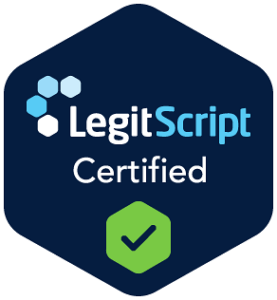
LegitScript Certified – Confirms that Tennessee Detox Center operates in full compliance with laws and regulations, and meets high standards for transparency and accountability in addiction treatment marketing.
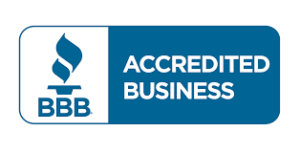
BBB Accredited – Demonstrates ethical business practices, commitment to customer satisfaction, and a trusted reputation within the community.
Psychology Today Verified – Indicates that Tennessee Detox Center is listed on Psychology Today, a trusted directory for verified mental health providers and treatment centers.
HIPAA Compliant – Ensures all patient health information (PHI) is protected and managed in accordance with strict federal privacy and data security standards.
ASAM Member – Tennessee Detox Center is a proud member of the American Society of Addiction Medicine (ASAM), reflecting a commitment to science-driven and evidence-based treatment standards.

Rutherford County Chamber of Commerce – Membership signifies active participation in the local community and support for regional growth and civic collaboration.
Get Family Support Now
Supporting Families Through Recovery
We understand addiction affects the whole family. Our comprehensive family program helps rebuild trust and restore relationships.
Weekly Family Therapy Sessions
Educational Workshops
Support Groups
Communication Skills Training


- [1] Office of the Commissioner. (2025, September 25). FDA and Kratom. U.S. Food And Drug Administration. https://www.fda.gov/news-events/public-health-focus/fda-and-kratom
- [2] Kratom. (2022, March 25). National Institute on Drug Abuse. https://nida.nih.gov/research-topics/kratom
- [3] Striley, C. W., Hoeflich, C. C., Viegas, A. T., Berkowitz, L. A., Matthews, E. G., Akin, L. P., Iheanyi-Okeahialam, C., Mansoor, U., & McCurdy, C. R. (2022). Health Effects Associated With Kratom (Mitragyna speciosa) and Polysubstance Use: A Narrative Review. Substance Abuse Research and Treatment, 16. https://doi.org/10.1177/11782218221095873
- [4] Striley, C. W., Hoeflich, C. C., Viegas, A. T., Berkowitz, L. A., Matthews, E. G., Akin, L. P., Iheanyi-Okeahialam, C., Mansoor, U., & McCurdy, C. R. (2022b). Health Effects Associated With Kratom (Mitragyna speciosa) and Polysubstance Use: A Narrative Review. Substance Abuse Research and Treatment, 16. https://doi.org/10.1177/11782218221095873
- [5] Smith, K. E., Sharma, A., Grundmann, O., & McCurdy, C. R. (2023). Kratom alkaloids: a blueprint? ACS Chemical Neuroscience, 14(2), 195–197. https://doi.org/10.1021/acschemneuro.2c00704
- [6] Becker, D. E. (2012). Basic and Clinical Pharmacology of Autonomic Drugs. Anesthesia Progress, 59(4), 159–169. https://doi.org/10.2344/0003-3006-59.4.159
- [1] Alcohol withdrawal: MedlinePlus Medical Encyclopedia. (n.d.). https://medlineplus.gov/ency/article/000764.htm
- [2] Shah, M., & Huecker, M. R. (2023, July 21). Opioid withdrawal. StatPearls – NCBI Bookshelf. https://www.ncbi.nlm.nih.gov/books/NBK526012/
- [3] Vicens, C., Fiol, F., Llobera, J., Campoamor, F., Mateu, C., Alegret, S., & Socías, I. (2006, December 1). Withdrawal from long-term benzodiazepine use: randomized trial in family practice. https://pmc.ncbi.nlm.nih.gov/articles/PMC1934057/
- [4] Henningfield, J. E., Chawarski, M. C., Garcia-Romeu, A., Grundmann, O., Harun, N., Hassan, Z., McCurdy, C. R., McMahon, L. R., Sharma, A., Shoaib, M., Singh, D., Smith, K. E., Swogger, M. T., Vicknasingam, B., Walsh, Z., Wang, D. W., & Huestis, M. A. (2023b). Kratom withdrawal: Discussions and conclusions of a scientific expert forum. Drug and Alcohol Dependence Reports, 7, 100142. https://doi.org/10.1016/j.dadr.2023.100142
- [5] Medications for substance use disorders. (n.d.). https://www.samhsa.gov/substance-use/treatment/options
- [1] Alcohol withdrawal: MedlinePlus Medical Encyclopedia. (n.d.). https://medlineplus.gov/ency/article/000764.htm
- [2] Shah, M., & Huecker, M. R. (2023, July 21). Opioid withdrawal. StatPearls – NCBI Bookshelf. https://www.ncbi.nlm.nih.gov/books/NBK526012/
- [3] Vicens, C., Fiol, F., Llobera, J., Campoamor, F., Mateu, C., Alegret, S., & Socías, I. (2006, December 1). Withdrawal from long-term benzodiazepine use: randomized trial in family practice. https://pmc.ncbi.nlm.nih.gov/articles/PMC1934057/
- [4] Henningfield, J. E., Chawarski, M. C., Garcia-Romeu, A., Grundmann, O., Harun, N., Hassan, Z., McCurdy, C. R., McMahon, L. R., Sharma, A., Shoaib, M., Singh, D., Smith, K. E., Swogger, M. T., Vicknasingam, B., Walsh, Z., Wang, D. W., & Huestis, M. A. (2023b). Kratom withdrawal: Discussions and conclusions of a scientific expert forum. Drug and Alcohol Dependence Reports, 7, 100142. https://doi.org/10.1016/j.dadr.2023.100142
- [5] Medications for substance use disorders. (n.d.). https://www.samhsa.gov/substance-use/treatment/options

Medically Reviewed By:
Dr. Vahid Osman, M.D.
Board-Certified Psychiatrist and Addictionologist
Dr. Vahid Osman is a Board-Certified Psychiatrist and Addictionologist who has extensive experience in skillfully treating patients with mental illness, chemical dependency and developmental disorders. Dr. Osman has trained in Psychiatry in France and in Austin, Texas. Read more.

Clinically Reviewed By:
Josh Sprung, L.C.S.W.
Board Certified Clinical Social Worker
Joshua Sprung serves as a Clinical Reviewer at Tennessee Detox Center, bringing a wealth of expertise to ensure exceptional patient care. Read More
The Joint Commission – The Gold Seal of Approval® signifies that Tennessee Detox Center meets or exceeds rigorous performance standards in patient care, safety, and quality. It reflects a commitment to continuous improvement and clinical excellence.

LegitScript Certified – Confirms that Tennessee Detox Center operates in full compliance with laws and regulations, and meets high standards for transparency and accountability in addiction treatment marketing.

BBB Accredited – Demonstrates ethical business practices, commitment to customer satisfaction, and a trusted reputation within the community.
Psychology Today Verified – Indicates that Tennessee Detox Center is listed on Psychology Today, a trusted directory for verified mental health providers and treatment centers.
HIPAA Compliant – Ensures all patient health information (PHI) is protected and managed in accordance with strict federal privacy and data security standards.
ASAM Member – Tennessee Detox Center is a proud member of the American Society of Addiction Medicine (ASAM), reflecting a commitment to science-driven and evidence-based treatment standards.

Rutherford County Chamber of Commerce – Membership signifies active participation in the local community and support for regional growth and civic collaboration.
Hear directly from those who have walked the path to recovery. Our patients’ stories highlight the compassionate care, effective programs, and life-changing support they’ve experienced. Let their journeys inspire you as you take your first steps toward healing.










Thank you all so much!




















The facility itself is clean, well-maintained, and equipped with all the necessary amenities to provide a serene and supportive environment.
What truly stands out is the personalized approach to care. The team developed a treatment plan tailored to my specific needs, incorporating both medical and holistic therapies. This comprehensive approach not only addressed my physical withdrawal symptoms but also supported my mental and emotional well-being.
The counselors and therapists offer a range of therapies that helped me understand the root causes of my addiction and develop effective coping strategies. Group therapy sessions provided a safe space to share experiences and gain insights from others on similar journeys.
Overall, my experience with this medical detox program was life-changing. The compassionate and skilled staff, combined with the personalized treatment approach, provided me with the foundation I needed for a successful recovery. I highly recommend this facility to anyone seeking a safe and supportive environment for detox and recovery.
But it's the people who make this place truly special. The staff, they've been there, they understand the struggle. No judgment, just support, encouragement, and a genuine desire to help you heal. They treated me like an old friend, even though I was just visiting for my buddy.
They've got a whole range of therapies to help you on your journey – individual counseling, group sessions, and even a fitness center to get you moving again. It's not just about detox. It's about rebuilding your life from the ground up.
My friend, the owner, he's living proof that this place works. He poured his heart into creating a haven for those seeking recovery, and his passion shines through in every detail.
So, if you're ready to take that first step, this is the place. Trust me, they'll walk beside you every step of the way.


